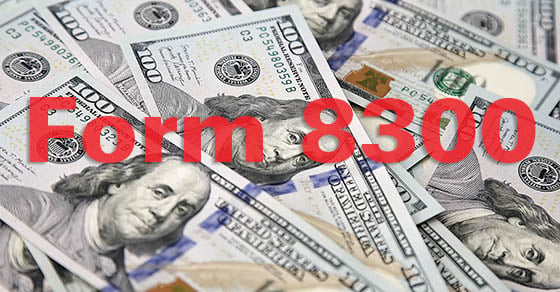

Does your business receive large amounts of cash or cash equivalents? If so, you’re generally required to report these transactions to the IRS — and not just on your tax return. Here are some answers to questions you may have.
What are the requirements?
Although many cash transactions are legitimate, the IRS explains that the information reported on Form 8300 “can help stop those who evade taxes, profit from the drug trade, engage in terrorist financing and conduct other criminal activities. The government can often trace money from these illegal activities through the payments reported on Form 8300 and other cash reporting forms.”
Each person who, in the course of operating a trade or business, receives more than $10,000 in cash in one transaction (or two or more related transactions), must file Form 8300. Who is a “person”? It can be an individual, company, corporation, partnership, association, trust or estate. What are considered “related transactions”? Any transactions between the same payer and recipient conducted in a 24-hour period. Transactions can also be considered related even if they occur over a period of more than 24 hours if the recipient knows, or has reason to know, that each transaction is one of a series of connected transactions.
In order to complete Form 8300, you’ll need personal information about the person making the cash payment, including a Social Security or taxpayer identification number.
The IRS reminds businesses that they can “batch file” their reports, which is especially helpful to those required to file many forms.
Note: Under a rule that went into effect on January 1, 2024, businesses must now file Forms 8300 electronically if they’re otherwise required to e-file certain other information returns electronically, such as W-2s and 1099s. You also must e-file if you’re required to file at least 10 information returns other than Form 8300 during a calendar year.
What’s the definition of cash and cash equivalents?
For Form 8300 reporting purposes, cash includes U.S. currency and coins, as well as foreign money. It may also include cash equivalents such as cashier’s checks (sometimes called bank checks), bank drafts, traveler’s checks and money orders.
Money orders and cashier’s checks under $10,000, when used in combination with other forms of cash for a single transaction that exceeds $10,000, are defined as cash for Form 8300 reporting purposes.
What about digital assets such as cryptocurrency? Despite a 2021 law that would treat certain digital asset receipts like “cash,” the IRS announced in 2024 that you don’t have to report digital asset receipts on Form 8300 until regulations are issued. IRS Announcement 2024-4 remains the latest official word.
Note: Under a separate reporting requirement, banks and other financial institutions report cash purchases of cashier’s checks, treasurer’s checks and/or bank checks, bank drafts, traveler’s checks and money orders with a face value of more than $10,000 by filing currency transaction reports.
What type of penalties can be imposed for noncompliance?
If a business doesn’t file Forms 8300 on time, there can be a civil penalty of $310 for each missed form, up to an annual cap. The penalties are higher if the IRS finds the failure to file is intentional, and there can be criminal penalties as well.
In one recent case, an Arizona car dealer failed to file the required number of Forms 8300. While the dealer did file 116 forms for the year in question, the IRS determined that the business should have filed an additional 266 forms.
The tax agency assessed penalties of $118,140. The dealer argued that it had reasonable cause for not filing all the forms because the software it was using wasn’t functioning properly. However, the U.S. Tax Court ruled that the dealer wasn’t using the software correctly and didn’t take steps to foster compliance. (TC Memo 2025-38)
We can help
Compliance with Form 8300 requirements can help your business avoid steep penalties and trouble with the IRS. Recordkeeping is critical. You should keep a copy of each Form 8300 for five years from the date you file it, according to the IRS. “Confirmation receipts don’t meet the recordkeeping requirement,” the tax agency adds. Contact us if you have any questions or need assistance.

